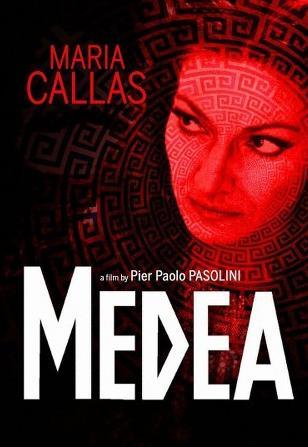The Quest for the Golden Fleece
Movies
In a land where Centaurs are real, a young man receives instruction on the nature of rites, rituals and mythic realities from his hoofed mentor. As he gets older, his tutor becomes increasingly more human and reveals to him the harsh facts of life that are obscured by myth. Reason slowly replaces the gods of childhood.
In a more Eastern and exotic place people in colorful costumes sacrifice a youth and eat his flesh. Their mythic reality is very much alive and closely related to the cycles of nature and their experience of life. Echoes of this time and place still echo in the religious life of many people.
Jason demands the return of his kingdom from his uncle Pelias. He is told that he will be granted it if he can procure the Golden Fleece, a talisman of great power.
Companions are gathered, fellow youths who will eventually mature into the Argonauts in future re-tellings. There are twins, a musician, a powerfully built man, an archer. All of them are robbers who delight in the acquisition of treasure. Jason is something of a ladies' man.
The Argo is a mere raft and the vast seas crossed are mostly of sand.
Meanwhile, Medea reacts to something symbolic that teasingly eludes our comprehension. The Golden Fleece is enshrined in a holy sanctuary that will one day evolve into our idea of a temple or church. She enlists the aid of her brother, the Priest who presided over the earlier sacrifice, and together they steal the Golden Fleece. While fleeing they encounter Jason and his band.
To slow down her father and his warriors, who are in hot pursuit, she slaughters her brother and roughly cuts him into chunks. Aetes and his army, horrified, stop to lovingly collect each piece while the Priestess and the crew of the Argo make good their escape.
On the return voyage cultures clash and Medea loses her spiritual center, the myths that gave meaning to her life.
Bringing the Golden Fleece to Pelias, Jason voices his realization that the kingdom he once desired is now too small and that the Golden Fleece is meaningless outside its mythic context.
Jason and Medea part ways with those who shared their adventure and live outside the circle of cultural influence, mostly making love.
Cheiron appears again to Jason, as a centaur and a man, then expresses vital truths Jason is not prepared to hear. In a movie moment that spans several years, the couple is settled in Jason's childhood culture, where he seems comfortable and happy. Seeing him dancing in celebration with other men, something Greeks do to this day, Medea descends into powerlessness to reclaim her lost self. She reconnects with her Sun God and becomes the instrument of his holy wrath.
She encourages Jason to marry Princess Glauce of Corinth, then actively imagines how to best destroy his world. Anticipating trouble, King Kreon exiles Medea and her children from his city. He grants her the extra day she requests, knowing that he may live to regret it.
Indeed he does, but fortunately not for long.
What is myth? What is reality? Are our actual experiences external or internal to us? How much of what we experience is shaped and colored by our personal beliefs? Pasolini's Medea, loosely based on Euripides' play and starring Maria Callas, is a thought provoking film that tackles these timeless questions. It is definitely worth watching... and contemplating.
Onwards!
Hercules Invictus
Note: There are two scenes with brief nudity in this film.
Larger than Life Living in the World Today
(c) 1975-2017 Hercules Invictus